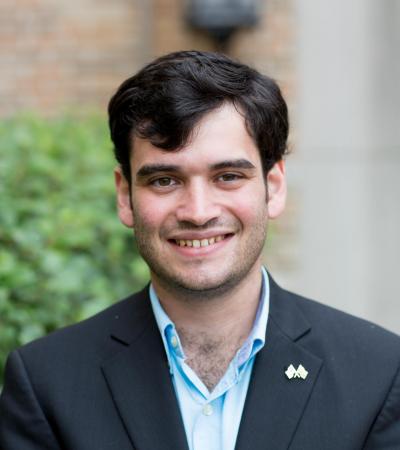Kroc-Kellogg PCCV Workshop - No Country for Criminals: Understanding Support for Iron Fist Candidates in Brazil

A Kroc-Kellogg Peace, Conflict, Crime and Violence workshop with Jake Turner, Kellogg Doctoral Student Affiliate, Department of Political Science
"No Country for Criminals: Understanding Support for Iron Fist Candidates in Brazil"
Abstract:
In 2018, Brazil elected Jair Bolsonaro, a relatively unknown politician who ran on a platform of anti-corruption, evangelism, and aggressive anti-crime rhetoric including a notorious phrase that came to define his campaign, “bandito bom é bandito morto” (the only good criminal is a dead criminal). One important feature of Bolsonaro's candidacy and his subsequent government has been his connection with the security forces and other specialists in violence. Not only is Bolsonaro himself a former captain in the Brazilian army, but his vice president Hamilton Mourão was a general, and pro-Bolsonaro factions in congress are populated with former military and police. This blurring of lines between elected officials, state security agents, and armed non-state actors is a familiar phenomenon in the Americas from the "hybrid state'' of Jamaica (Jaffe, 2013) to the "gray zone of criminality'' identified between drug cartels and the security sector in Mexico (Trejo and Ley, 2018). However, there remains much to be learned about how these relationships function in the electoral arena and when security sector candidates are most likely to enter government. This pre-analysis plan details a conjoint experiment to be fielded in Brazil that will explore why voters support military and police officers for elected office, teasing out the independent effects of security sector connections, criminal justice policies, and other ideological appeals on vote choice. I propose that candidates with police and military backgrounds have a comparative advantage projecting an image of a decisive leader unafraid to work outside of the established rules, attracting support independent of their criminal justice policy stances.
For the pre-circulated materials or more information, contact Gary Goertz.
This workshop seeks to integrate and develop collaboration between Kroc and Kellogg scholars focusing on the wide range of peace, conflict, and violence issues. It is intended to be broad in scope including topics such as political and criminal violence, human rights, and transitional justice along with standard issues of civil and international war, peacebuilding, and reconciliation. The format assumes that participants come to the workshop having read the paper. A discussant will start the discussion with 5-10 minutes of comments, then the floor is open. These sessions are open to Notre Dame faculty and graduate students. For the pre-circulated materials or more information, contact Gary Goertz.
Workshop Organizers: Guillermo Trejo, Gary Goertz, Laurie Nathan, Abby Córdova, and Josefina Echavarría Alvarez.
Jacob Turner
This profile was current as of 2024, when he was part of the on-campus Kellogg community.
Jacob Turner is a PhD student in the Department of Political Science. His research interests focus on the politics of democratization and post-conflict transitions in Latin America, particularly the impact of competitive electoral politics and state building in the context of weakly institutionalized democratic regimes...
Read More





